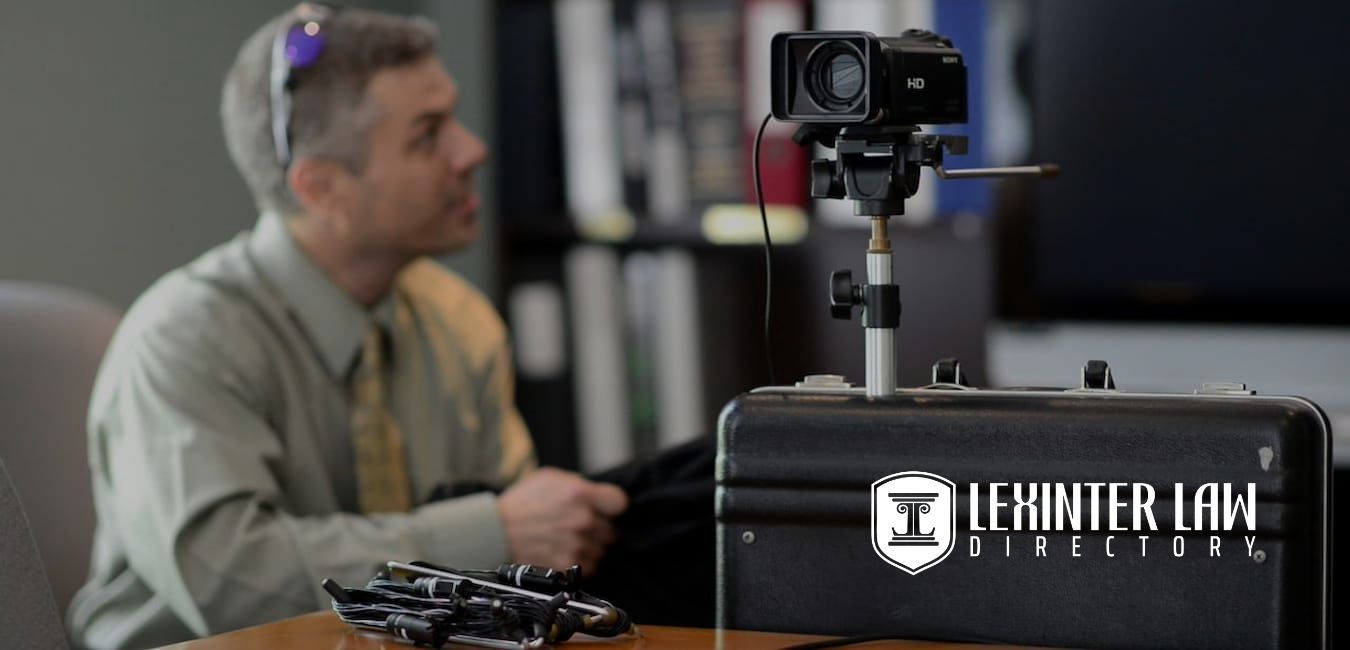Discovering the Effectiveness of Conducting Legal Depositions Remotely With Virtual Platforms

Advantages of Remote Depositions
Remote depositions supply significant advantages, consisting of enhanced flexibility and efficiency in legal procedures. One of the key advantages of conducting depositions remotely is the comfort it provides to all events included. By getting rid of the need for travel, people can take part in the deposition from any kind of area, saving time and reducing expenses connected with travelling. This enhanced adaptability also enables easier scheduling, as individuals can much more conveniently find time slots that benefit everyone included.
In addition, remote depositions often cause much shorter process due to the structured nature of virtual platforms. With attributes such as display sharing, digital exhibitions, and real-time transcription, the deposition process ends up being much more efficient and focused. Furthermore, remote depositions use improved accessibility for people with impairments, as virtual systems can suit numerous requirements, such as shut captioning and display viewers compatibility.
Modern Technology Tools for Online Depositions
Structure on the effectiveness and adaptability provided by remote depositions, the application of advanced modern technology devices boosts the performance of online deposition processes. Online depositions profit considerably from the integration of various modern technology tools that simplify communication, facilitate document sharing, and make certain smooth process. Video conferencing platforms like Zoom, Webex, and Microsoft Teams enable smooth real-time interaction between participants, replicating the face-to-face deposition experience. In addition, specialized deposition software such as LiveLitigation and CaseLines supply performances for exhibit handling, annotation, and electronic trademarks, lowering administrative burdens and boosting company. Electronic exhibition repositories, cloud storage space solutions, and safe and secure file-sharing solutions supply protected and practical methods for storing and exchanging deposition-related products. Furthermore, transcription solutions incorporated with AI technologies can supply accurate real-time transcriptions, assisting in recording crucial information and promoting post-deposition review. By leveraging these technology devices, lawyers can conduct online depositions successfully, guaranteeing a effective and effective procedure.
Ideal Practices for Remote Testimonies
Executing effective approaches for optimizing the influence of remote testaments is crucial for making certain trustworthiness and effectiveness in legal process. To achieve this, it is critical to develop clear guidelines and best methods for performing remote testimonies with digital systems.

Most importantly, it is necessary to make certain that all individuals know with the virtual system being utilized for the statement. Providing training sessions or tutorials beforehand can help witnesses and lawyers navigate the modern technology efficiently, lessening interruptions during the real testimony.
Additionally, keeping a well-prepared and specialist temperament is crucial for all celebrations entailed (Remote Depositions). This includes dressing suitably, ensuring a peaceful and neutral history, and carrying out the statement in a well-lit atmosphere to boost exposure
Furthermore, establishing clear interaction procedures, such as raising hands to talk and silencing microphones when not talking, can aid improve the process and stay clear of unnecessary disruptions.
Protection Procedures in Virtual Depositions
In the context of remote lawful proceedings, maintaining the stability and privacy of info traded throughout virtual depositions requires the implementation of robust safety procedures. Digital depositions present special challenges in guaranteeing information security due to the digital nature of the interactions. One vital security procedure is utilizing encrypted communication channels to safeguard delicate details shared throughout the deposition. It is necessary to validate the identification of all participants and limitation accessibility to just certified people to avoid unauthorized disclosure of info. In addition, employing secure virtual platforms with multi-factor authentication and end-to-end security can improve the general protection pose of the deposition procedure. On a regular basis updating protection protocols and performing cybersecurity training for all entailed celebrations are crucial action in mitigating prospective risks related to online depositions. By prioritizing safety and security procedures, attorneys can impart depend on in the digital deposition procedure and maintain the discretion and honesty of the legal process.
Conquering Obstacles of Remote Depositions
Exactly how can legal professionals efficiently browse and deal with the hurdles related to carrying out remote depositions? One of the primary obstacles of remote depositions is making sure the modern technology operates smoothly throughout the whole procedure. To overcome this, it is vital for legal experts to conduct thorough innovation checks well before the deposition and have backup strategies in position in case of technical difficulties. Remote Depositions. In addition, preserving a high degree of interaction with all celebrations entailed, consisting of the stenotype reporter, witnesses, and opposing counsel, is vital to resolve any kind of problems immediately.
Another barrier is making certain the safety and confidentiality of the deposition procedures. Lawful experts need to choose a safe and secure digital system with security abilities to shield delicate details. Carrying out strict gain access to controls and securely sharing records can further boost the safety and security of remote depositions. Furthermore, giving clear instructions to all individuals concerning privacy procedures and assumptions is vital to keeping the stability of the deposition process. By proactively dealing with these challenges, lawyers can successfully carry out remote depositions with performance and confidence.
Conclusion

In the fast-evolving landscape of legal process, the change towards carrying out lawful depositions remotely with online platforms has actually become a focal factor of conversation among lawful professionals.Structure on the performance and flexibility provided by remote depositions, the utilization of advanced modern technology tools improves the effectiveness of virtual deposition procedures. Digital depositions existing one-of-a-kind challenges in ensuring information defense due to the digital nature of the interactions. By prioritizing protection measures, lawful experts can instill trust fund in the virtual deposition procedure and promote the discretion and stability of the legal proceedings.
In spite of difficulties, the advantages of carrying out legal depositions remotely with online systems make it a practical choice for lawful wikipedia reference specialists.